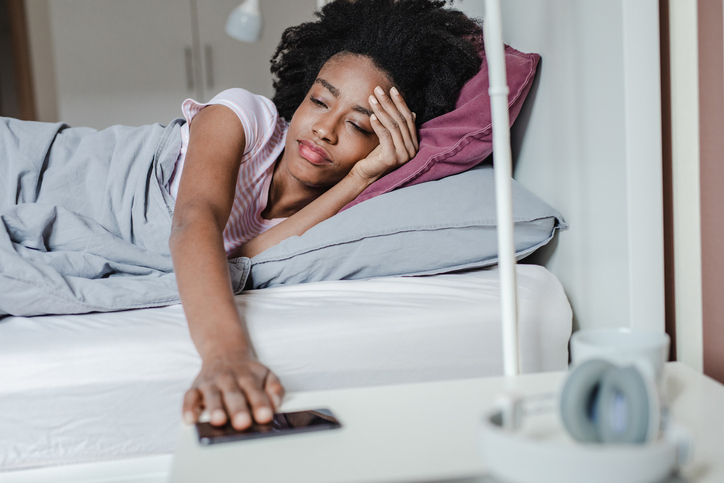
Source: blackCAT / Getty
One little hour. How much harm can such a short time period do? Or, rather, the loss of an hour – which is what we experience each March when we set our clocks forward for Daylight Saving Time. Evidence suggests it can actually do a lot of damage. The Sleep Foundation reports that humans see substantial sleep issues in early March following this change, and these issues can lead to other problems like heart problems, mood disorders and even car accidents. An article published in MDPI shows that sleep loss is an epidemic being experienced the world over, by all demographics, and leads to reduced mental capabilities, obesity and a slew of other concerns.
Making that small adjustment every March can have big implications. But you don’t have to just accept restlessness and reduced functions for weeks. There are ways to adjust to Daylight Saving Time quicker. Here are some tips you can use now.
Keep Your Wakeup Time + Add Naps
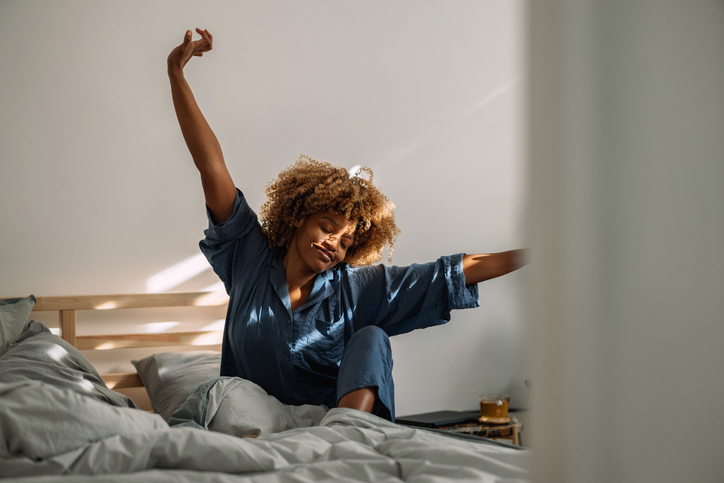
Source: miniseries / Getty
While there’s a temptation to stay up late and sleep in late as your body adjusts to the new time, do your best to keep bedtimes consistent. Set your alarm for the same hour each morning. To help with the exhaustion, take a short nap in the afternoon. Avoid long naps, as these can disrupt the following night’s sleep. A brief cat nap can offset some of the brain fog as your body adjusts to the new clock.
Get More Light in the Morning
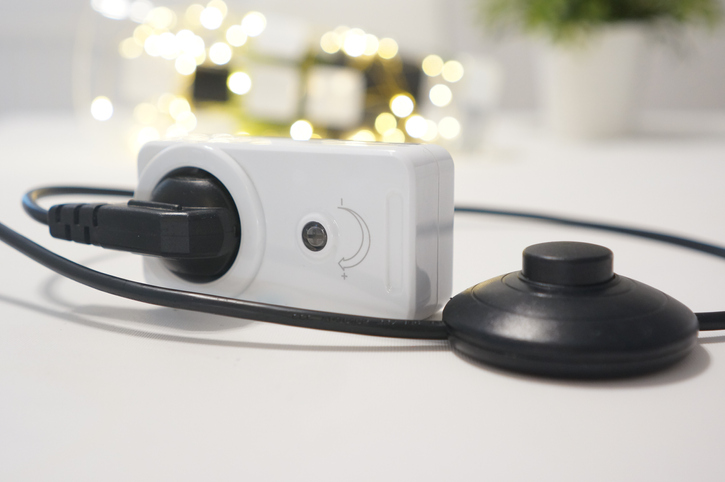
Source: Icy Macload / Getty
Getting sufficient light in the morning is an important part of helping your internal clock adjust to Daylight Saving Time. With the clock set an hour ahead, the sun might not yet be up at your regular wakeup time – at least for now. Consider installing a timer and dimmer on your bedroom light. Schedule it to slowly increase right before your alarm. This mimics the appearance of the sun slowly rising, which will signal to your brain that it’s time to wake.
Avoid Screens and Bright Light at Night
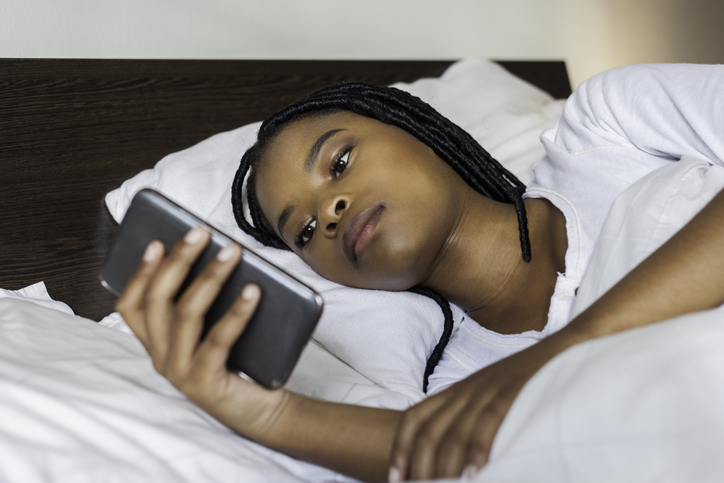
Source: AfricaImages / Getty
While getting more light in the mornings is important, getting less of it at night is also critical. Even if the sun is still partially up in the evening, start dimming the lights around your home. Avoid screens – particularly those that create blue light such as smartphones and iPads – an hour or two before bedtime. The Journal of Psychiatric Research shows that screen time at bedtime contributes to insomnia. Your exposure to light is a big part of your circadian rhythm. Getting less exposure to light as the evening winds down signals to your brain that it’s almost time to go to sleep.
Exercise Early
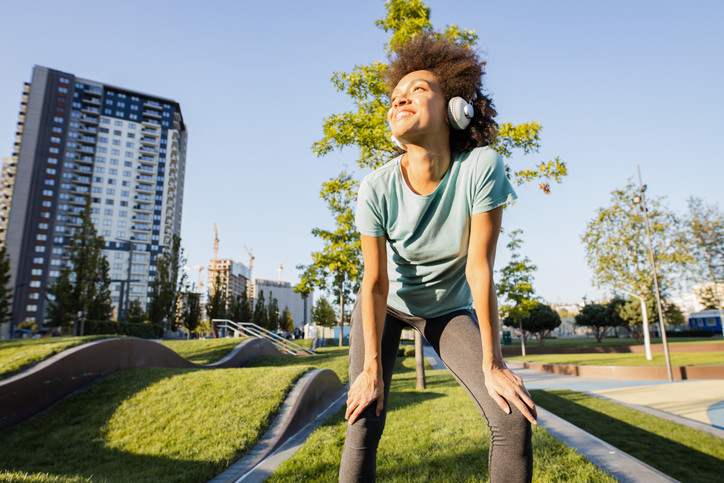
Source: Riska / Getty
Try exercising on the earlier side of the day. The Sleep Foundation states that intense exercise near bedtime makes it difficult for your endorphin levels and core body temperature to drop in time for you to fall asleep. Having each of these elevated keeps your body in an alert state. It’s best to get your workout in far away from bedtime, if possible.
Avoid Caffeine in the PM
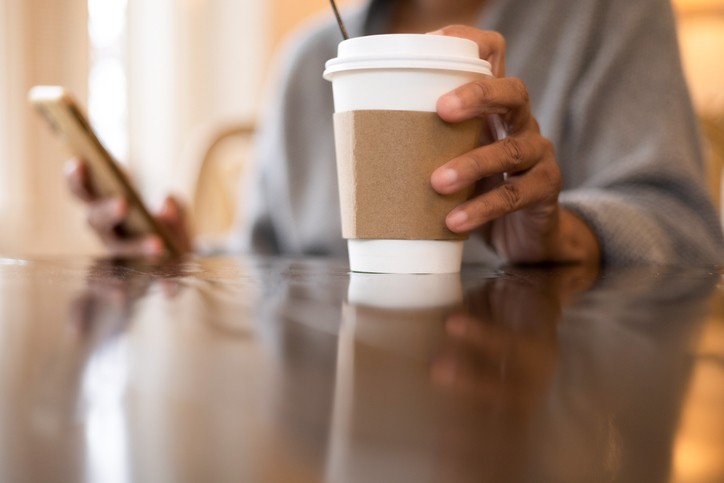
Source: Catherine McQueen / Getty
That after-lunch latte might pick you up just when you need it, but it can also keep you up when you don’t. Research out of the American Academy of Sleep Medicine has found that even moderate amounts of coffee within six hours of bedtime can cause sleep disturbances. Following Daylight Saving Time, you might be particularly tempted to grab some java later in the day, but this can perpetuate the cycle of sleeplessness.
Avoid Alcohol at Night

Source: Silvio Martin Ferreira / EyeEm / Getty
If you’re feeling wired leading up to bedtime because of the time change, you might reach for alcohol. Its sedative effects can help you fall asleep. However, research out of Alberta Health Services reports that, while booze helps you doze off, it ultimately leads to poor quality sleep. It’s common to wake often during the night following alcohol consumption and feel fatigued during the day. Each of these issues can be exacerbated when combatting Daylight Saving Time fatigue.
Keep a Consistent Eating Schedule
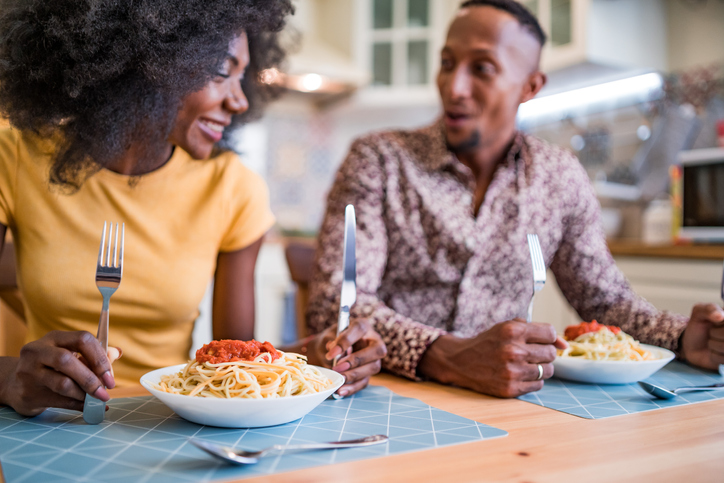
Source: valentinrussanov / Getty
Your eating schedule and sleep schedule have a close relationship. Your body is used to having a set amount of time to digest food before bedtime. Disrupting this can mean disrupting sleep. Even if you don’t feel hungry at the regular time, make yourself eat a light dinner at the normal hour. Keeping as many functions on schedule will help normalize your circadian rhythm.












